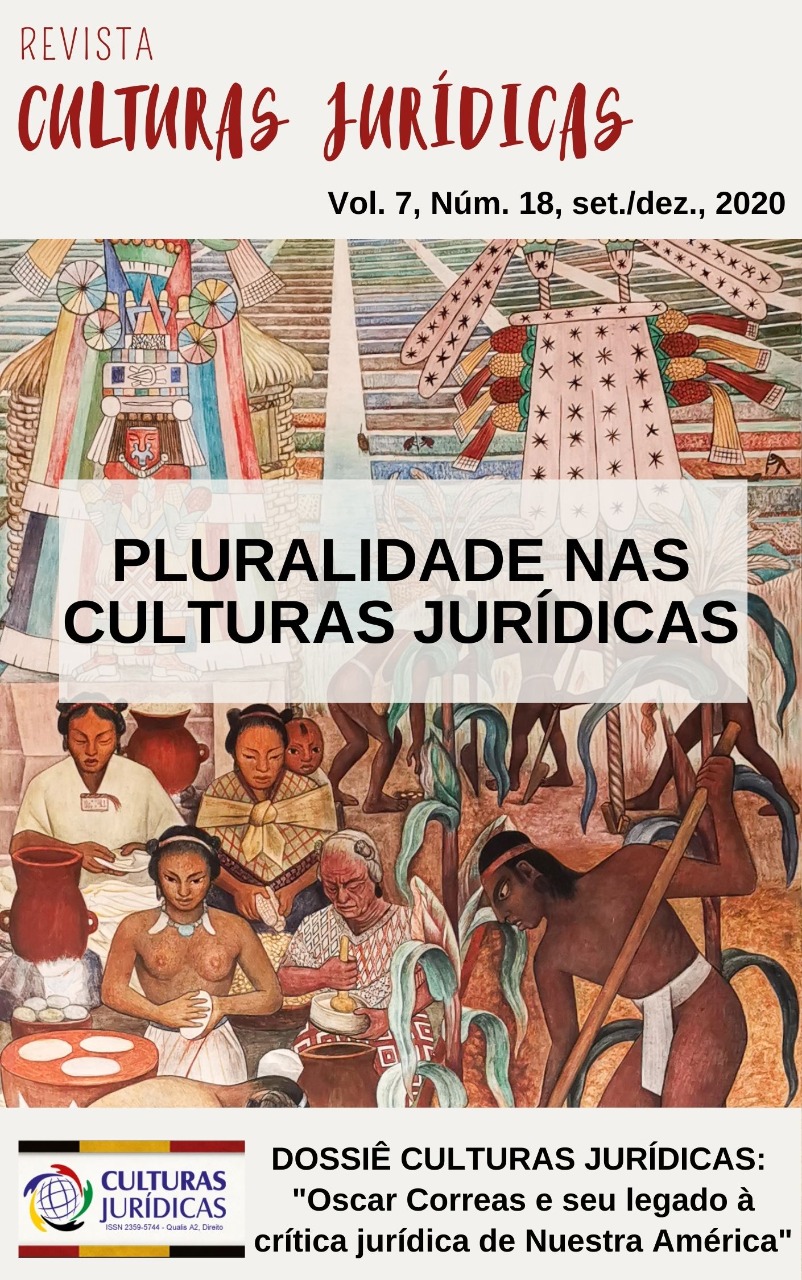THE JUDICIALIZATION OF THE COVID-19 PANDEMIC IN BRAZIL
A CASE STUDY ON THE APPLICATION OF TOPIC MODELING FOR GROUPING LEGAL DOCUMENTS
Keywords:
Judicialização, Covid-19, Processamento de Linguagem Natural, Linguística de Corpus, Modelagem de TópicosAbstract
This article intends to carry out an exploratory and empirical investigation regarding the judicialization of the Covid-19 epidemic in Brazil. To achieve this objective, a corpus of legal documents on the subject was created, which subsequently went through the scrutiny of natural language processing and computational linguistic tools. At the end of the analysis, there was a great predominance of discussions regarding the management of the population of the prison and socio-educational systems, mainly due to the great repercussion achieved by Recommendation No. 62/2020 of the CNJ. The study points to future lines of investigation on the subject of the impacts of Covid-19 on the Brazilian judicial system and signals the potential that exists in using the computational approach to analyze large amounts of legal data.
Downloads
References
ALUÍSIO, Sandra Maria; DE BARCELLOS ALMEIDA, Gladis Maria. O que é e como se constrói um corpus? Lições aprendidas na compilação de vários corpora para pesquisa linguística. Calidoscópio, v. 4, n. 3, p. 156-178, 2006.
BARROSO, Luís Roberto. A Judicialização da Vida e o Papel do Supremo Tribunal Federal. Belo Horizonte: Forum, 2018.
BLEI, David M. Probabilistic topic models. Communications of the ACM, v. 55, n. 4, p. 77-84, 2012.44.
BOEING, Daniel H. Arruda; ROSA, Alexandre Morais da. Ensinando um robô a julgar: pragmática, discricionariedade e vieses no uso de aprendizado de máquina no judiciário. Florianópolis: EMais, 2020.
BOYD-GRABER, Jordan; MIMNO, David; NEWMAN, David. Care and feeding of topic models: Problems, diagnostics, and improvements. Handbook of mixed membership models and their applications, v. 225-255, 2014.
FILHO, Marçal Justen et al. COVID-19 e o Direito brasileiro. Curitiba: Justen, Pereira, Oliveira & Talamini, 2020.
JELODAR, Hamed et al. Latent Dirichlet Allocation (LDA) and Topic modeling: models, applications, a survey. Multimedia Tools and Applications, v. 78, n. 11, p. 15169-15211, 2019.
LIVERMORE, Michael A.; ROCKMORE, Daniel Nahum (Ed.). Law as Data: Computation, Text, & the Future of Legal Analysis. Santa Fé Institute Press, 2019.
MATIDA, Janaina. É preciso se dar fim à seletividade probatória. Consultor Jurídico, 2020. Disponível em: https://www.conjur.com.br/2020-jul-17/limite-penal-preciso-dar-fim-seletividade-probatoria. Acesso em: 17 jul. 2020.
MINAYO, Maria Cecília de Souza; RIBEIRO, Adalgisa Peixoto. Condições de saúde dos presos do estado do Rio de Janeiro, Brasil. Ciênc. saúde coletiva, Rio de Janeiro, v. 21, n. 7, p. 2031-2040, July 2016. Disponível em: <http://www.scielo.br/scielo.php?script=sci_arttext&pid=S1413-81232016000702031&lng=en&nrm=iso>. Acesso em 30 Jun. 2020. http://dx.doi.org/10.1590/1413-81232015217.08552016.
PISTOR, Katharina. Law in the Time of COVID-19. Columbia Law School, 2020.
POSSÍDIO, Cyntia; MARTINEZ, Luciano. O trabalho nos tempos do Coronavírus. São Paulo: Saraiva Educação SA, 2020.
ROSENVALD, Nelson et al. Coronavirus e responsabilidade civil: impactos contratuais e extracontratuais. Editora Foco, 2020.
SARDINHA, Tony Berber. Lingüística de corpus: histórico e problemática. Delta: documentação de estudos em lingüística teórica e aplicada, v. 16, n. 2, p. 323-367, 2000.
VALLINDER, Torbjörn. The Judicialization of Politics. A World-Wide Phenomenon: Introduction. International Political Science Review/Revue internationale de science politique, p. 91-99, 1994.
VIANNA, Luiz Werneck. A judicialização da política e das relações sociais no Brasil. Rio de Janeiro: Editora Revan, 1999.
Downloads
Published
Versions
- 2021-04-01 (3)
- 2021-04-01 (2)
- 2020-11-12 (1)





